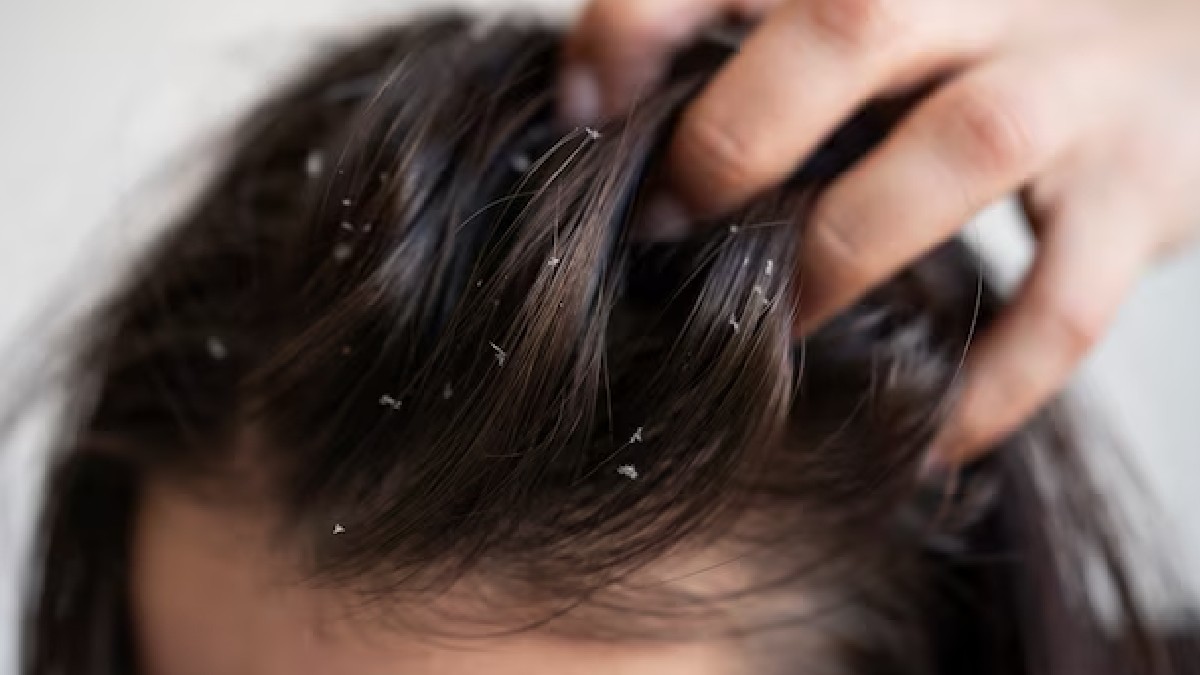
Dandruff is a common scalp condition characterised by flaky skin that sheds from the scalp. It can be both embarrassing and uncomfortable, leading many individuals to seek remedies for relief. One age-old debate in hair care revolves around whether to oil hair afflicted with dandruff. Let's delve into this topic and explore some tips for effectively managing stubborn dandruff.
Table of Content:-
Should You Oil Your Hair Covered in Dandruff?
Oiling your hair when dealing with dandruff can be a double-edged sword. While some people find relief from the itchiness and dryness associated with dandruff through oiling, others may exacerbate the condition. Here are some considerations to keep in mind:
1. Type of Oil
Certain oils, such as coconut oil and tea tree oil, possess antifungal properties that can help combat the underlying cause of dandruff, which is often fungal in nature. These oils may provide relief and aid in reducing dandruff when used appropriately.
2. Frequency
Oiling your hair too frequently can lead to a buildup of oil on the scalp, exacerbating dandruff. It's essential to find a balance and not overdo it. Opt for occasional oil treatments rather than daily applications.

3. Scalp Sensitivity
Individuals with sensitive scalps may find that certain oils aggravate their dandruff or cause irritation. If you notice any adverse reactions, discontinue use immediately and consult with a dermatologist for alternative solutions.
4. Combination with Other Treatments
Oiling can complement other dandruff treatments, such as medicated shampoos or scalp treatments. However, it's crucial to follow the instructions provided by your dermatologist or healthcare professional and not rely solely on oiling for dandruff management.
Tips to Deal with Stubborn Dandruff
1. Use Medicated Shampoos
Incorporate medicated shampoos containing ingredients like ketoconazole, selenium sulphide, or salicylic acid into your hair care routine. These ingredients can help control dandruff and prevent its recurrence.
2. Maintain Good Hygiene
Wash your hair regularly with a gentle, sulphate-free shampoo to remove excess oil, dirt, and dead skin cells from the scalp. Avoid hot water, as it can strip the scalp of its natural oils and exacerbate dryness.

3. Healthy Diet and Lifestyle
A balanced diet rich in vitamins, minerals, and antioxidants can promote scalp health and reduce the likelihood of dandruff. Additionally, managing stress levels and getting an adequate amount of sleep can also contribute to overall scalp wellness.
4. Avoid Trigger Factors
Identify and avoid factors that trigger or worsen your dandruff, such as certain hair products, stress, or dietary choices. By eliminating these triggers, you can help minimise dandruff flare-ups.
Bottomline
Whether to oil your hair when dealing with dandruff depends on various factors, including the type of oil, scalp sensitivity, and individual preferences. While oiling can offer benefits for some individuals, it's essential to approach it cautiously and in conjunction with other dandruff management strategies. If dandruff persists despite home remedies and over-the-counter treatments, seek advice from a dermatologist for personalised recommendations and treatment options.
Also watch this video
How we keep this article up to date:
We work with experts and keep a close eye on the latest in health and wellness. Whenever there is a new research or helpful information, we update our articles with accurate and useful advice.
Current Version